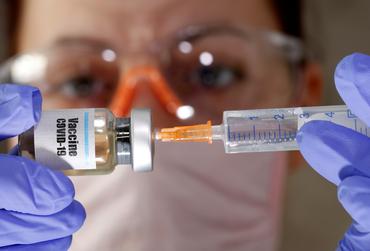Pfizer, BioNTech’s coronavirus vaccine candidates get FDA’s ‘fast track’ status
(Reuters) – Pfizer Inc and partner BioNTech SE said on Monday two of their experimental coronavirus vaccines received ‘fast track’ designation from the U.S. health agency, speeding up the regulatory review process.
The U.S.-listed shares of the German firm climbed about 10%, while Pfizer’s stock rose about 2% before the bell.
The companies are in a global race with Moderna Inc, AstraZeneca Plc and others to develop a vaccine for COVID-19, the respiratory illness caused by the new coronavirus, which has claimed over 568,500 lives globally, according to a Reuters tally.
There are no approved vaccines for COVID-19, and the United States and other countries have poured billions into their development as they seek to secure a safe and effective vaccine.
The fast track status could potentially make Pfizer and BioNTech’s vaccine candidates, BNT162b1 and BNT162b2, eligible for the U.S. Food and Drug Administration’s ‘priority review’, under which the agency aims to decide on an approval within six months.

FILE PHOTO: A woman holds a small bottle labeled with a “Vaccine COVID-19” sticker and a medical syringe in this illustration taken April 10, 2020. REUTERS/Dado Ruvic/Illustration/File Photo
Moderna Inc, which is developing a potential vaccine using similar technology as Pfizer/BioNTech, won the same status for its COVID-19 vaccine candidate in May.
BNT162b1 and BNT162b2 are the most advanced of the at least four vaccines being assessed by the companies in ongoing trials in the United States and Germany.
Earlier this month, the companies said the testing of two dosages of BNT162b1 on 24 healthy volunteers showed that after 28 days they had developed higher levels of COVID-19 antibodies than typically seen in infected people.
The companies said they expect to start a large trial with up to 30,000 participants as soon as later this month, upon regulatory approval.
They also expect to make up to 100 million doses by the end of this year and potentially more than 1.2 billion doses by 2021-end, if the vaccine is successful.
Reporting by Manas Mishra and Manojna Maddipatla in Bengaluru; Editing by Shinjini Ganguli and Sriraj Kalluvila



